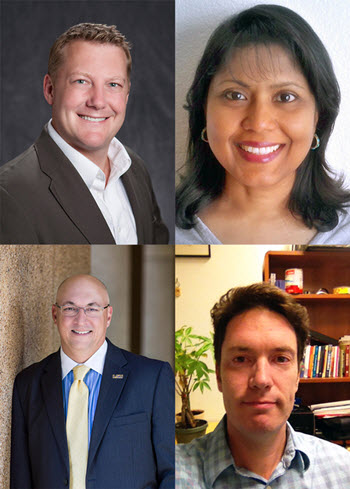
The researchers hope to better understand the Deepwater Horizon oil spill’s long-term impact on the health and wellbeing of families – especially children – living in highly impacted regions. (Photo provided by Jaishree Beedasy with permission)
Immediately following the Deepwater Horizon oil spill, the National Center for Disaster Preparedness surveyed households in highly-affected Louisiana areas to track the event’s health and social impacts.
Follow up studies in 2014 revealed that physical and mental distress resulting from the spill still persisted, with over 15% of respondents reporting no perceived recovery of their household or community.
The Gulf of Mexico Research Initiative recently awarded Dr. Tim Slack a grant to continue impact assessments of the oil spill on families and their children. The study will combine surveys, focus groups, and social media analyses to create a longitudinal dataset with time points in 2014, 2016, and 2018. This data will help document social consequences, such as risk behaviors and educational and economic opportunities, and physical and mental effects of disaster-related trauma on families affected by the spill. The study will also examine how these impacts are related to various dimensions of disaster vulnerability (a person or community’s risk of negative disaster impacts) and resilience (the ability to adapt and recover).
The team will conduct face-to-face surveys with household members to gather quantitative information about children’s direct and indirect oil spill exposure; lasting physical, mental, and social health impacts; the household’s economic constraints and access to healthcare; and the community’s perceived recovery or deterioration.
The team will access and analyze social media data using a geospatial query tool tailored to certain locations and filtered using parameters such as keywords, user, date, and time. This information will be used to chart trends and timelines of social media communication related to resiliency topics. These data will help researchers determine if social media fits into existing patterns of resiliency or if it represents a unique form of post-spill resilience.

Principle Investigator Tim Slack (top left) and co-PIs Jaishree Beedasy (top right), Matthew Lee (bottom left), and Thomas Chandler (bottom right) will collect data from spill-affected households to identify which services and support will be most helpful to their recovery. (Photos provided by Tim Slack)
The researchers will assemble six focus groups each with ten individuals based on parameters such as socio-demographics, reliance on social media, and vulnerability. Facilitators will encourage participants to share their personal experiences related to the oil spill, their specific roles and responsibilities during the spill and the following years, and how they used social media to deal with it. They will also consider how online communication with policymakers, first responders, and public health organizations about vulnerable communities’ needs has changed over time. Researchers will use this information to develop a deeper qualitative understanding of the participants’ oil spill experience.
“The quantitative survey technique and qualitative focus group technique are derived from different theoretical approaches,” said co-Principal Investigator Jaishree Beedasy. “However, the particular strengths and limitations of these methods complement one another in a unified research design.”
The team will combine the survey data, social media analysis, and focus group information to identify services and support that may be most beneficial to affected Gulf households and communities. Data will be available to other scientists, policy makers, and the public, and the researchers are planning to engage communities and community leaders in conversations about the findings. Slack explained, “Our ultimate goal is that the information generated from this project will be made actionable in terms of helping facilitate disaster resilience and mitigate vulnerability.”
The project’s researchers are Tim Slack and Matthew R. Lee at the Louisiana State University Department of Sociology and Jaishree Beedasy and Thomas Chandler at the Columbia University National Center for Disaster Preparedness. Their project is Understanding Resilience Attributes for Children, Youth, and Communities in the Wake of the Deepwater Horizon Oil Spill (RCYC).
************
The Gulf of Mexico Research Initiative (GoMRI) is a 10-year independent research program established to study the effect, and the potential associated impact, of hydrocarbon releases on the environment and public health, as well as to develop improved spill mitigation, oil detection, characterization and remediation technologies. An independent and academic 20-member Research Board makes the funding and research direction decisions to ensure the intellectual quality, effectiveness and academic independence of the GoMRI research. All research data, findings and publications will be made publicly available. The program was established through a $500 million financial commitment from BP. For more information, visit http://gulfresearchinitiative.org/.
